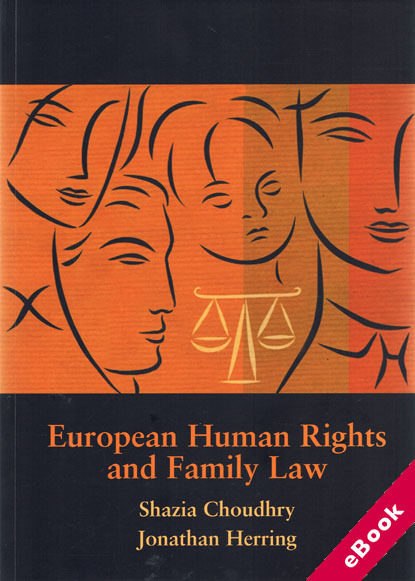
The device(s) you use to access the eBook content must be authorized with an Adobe ID before you download the product otherwise it will fail to register correctly.
For further information see https://www.wildy.com/ebook-formats
Once the order is confirmed an automated e-mail will be sent to you to allow you to download the eBook.
All eBooks are supplied firm sale and cannot be returned. If you believe there is a fault with your eBook then contact us on ebooks@wildy.com and we will help in resolving the issue. This does not affect your statutory rights.
This book examines the potential impact of human rights in the way the law interacts with families. Traditionally family law has been dominated by consequentialist/utilitarian themes.
The most notable example of this occurs in the law relating to children and the employment of the 'welfare principle'. This requires the court to focus on the welfare of the child as the paramount consideration. Hitherto the courts and, to a certain extent, family law academics, have firmly rejected the use of the language of rights, preferring the discretion and child-centred focus of welfare.
However, the incorporation of the European Convention on Human Rights via the Human Rights Act now requires family law to deal more clearly with the competing rights that family members can hold. In addition, it is clear that, to date, the courts have largely ignored or minimized the different demands that the HRA imposes on the judiciary and, in particular, judicial reasoning.
This book challenges that view and suggests ways in which the family courts may improve their reasoning in this field. No longer can cases be dealt with on the basis of a simple utilitarian calculation of what is in the best interests of the child and other family members - greater transparency is required.
The book clarifies the different rights that family members can hold and, in particular, identifies ways in which it may be possible to deal with the clash of rights between family members that will inevitably occur. Whether this requires an abandonment of the utilitarian nature of family law, or a reworking of it, is a theme that runs throughout the book.